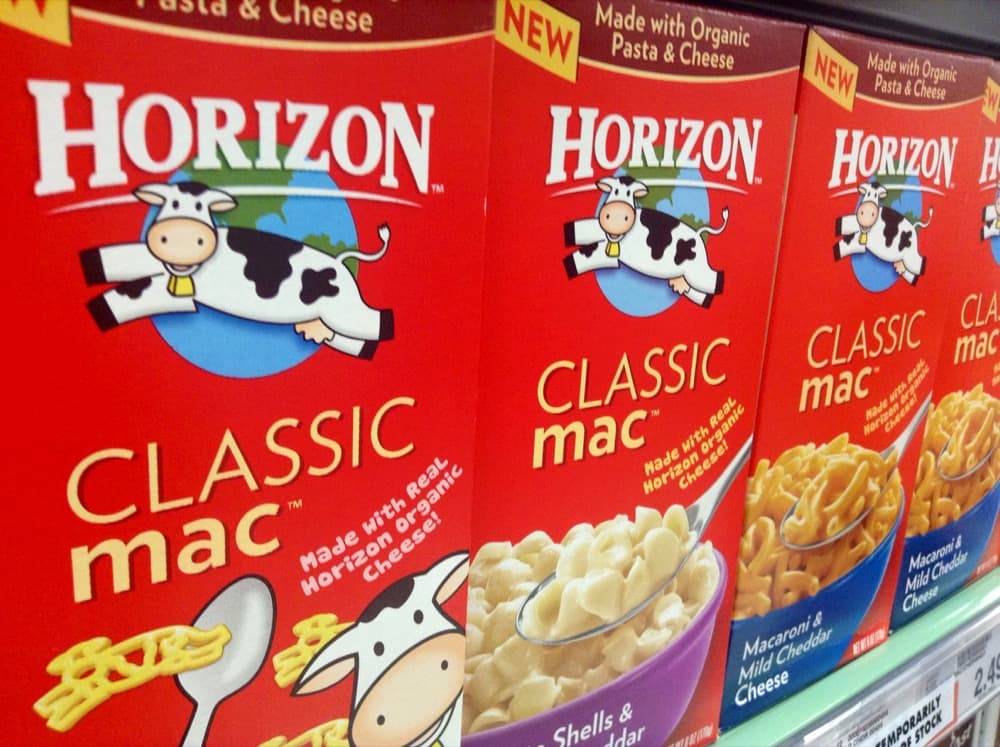Health-conscious consumers tend to shell out more money for natural products, and those spending habits have driven a wave of acquisitions, with large corporate brands snapping up organic or "natural" food companies.
Denver-based WhiteWave Foods Co. will likely be the latest natural food company to be acquired by a larger corporate brand.
The maker of Horizon organic products — think the red cardboard milk cartons with pictures of a flying cow — announced Thursday it was selling to the international food manufacturer Danone in a $10 billion deal.
If the deal gets regulatory approval, Horizon will join the ranks of Boca Burger Inc., bought by Kraft, Naked Juice Co., bought by Pepsico, and Odwalla Inc., bought by Coke. Closer to home — natural foods are big business in Colorado — Fort Collins-based Noosa Yoghurt was bought by a private equity firm and Boulder-based Justin's, maker of fine nut butters, was sold to Hormel, maker of Skippy and Spam.
"Usually the cost of production is a little higher for organic companies, but price premiums tend to more than offset those costs," said Catherine Greene, an agriculture economist for the U.S. Department of Agriculture.
Greene said organic sales are growing at about 10-12 percent annually after the recession, approaching an estimated $37 billion in 2015.
"Dairy is the second biggest sector behind fruits and vegetables," she said. "There's a big push in this country to expand our organic food grain production so we can see our organic dairy sector grow."
Organic dairy sales added up to $6.0 billion in 2015 and were up more than 10 percent from the previous year, according to the Organic Trade Association.
It's easier for researchers to study the organic industry than natural food brands overall. That's because the rules for calling something "organic" are thoroughly laid out by the federal government, but except in the case of meat products, the requirements for saying something is "natural" aren't so clear.
It might be easier for companies to purchase brands that are already certified organic rather than trying to navigate the USDA's more than 100 pages of regulations, said Erin Johnson, business and marketing client coordinator at the Robert M. Kerr Food & Agricultural Products Center in Oklahoma.
"When building a new company you have to start from scratch. You have to build consumer confidence. That confidence takes time to get and can be destroyed in an instant," Johnson said.
While Danone hasn't had its own organic brands, the company isn't a stranger to promoting healthy food. The company generated more than $20 billion in 2015 partly through its brands Activia, Oikos and Evian.
WhiteWave generated $4 billion in sales in 2015. In addition to Horizon the company has brands including Silk, Wallaby Organics, Earthbound Farm and International Delights.
"Today's announcement is an exciting next chapter for WhiteWave, bringing together two leading companies with a shared mission of changing the way the world eats for the better," WhiteWave CEO and chairman Gregg Engles said in a statement.
Business & data reporter Adrian D. Garcia can be reached via email at [email protected] or twitter.com/adriandgarcia.
Subscribe to Denverite’s newsletter here .














